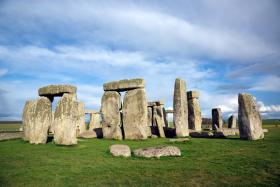Today is winter solstice, the shortest day of the calendar year in the UK with just seven hours and 49 minutes of daylight.
This astronomical phenomenon occurs every year between 19 and 21 December in the run-up to Christmas as the northern hemisphere is tilted on the earth's axis at its furthest remove from the sun during our planet's 365-day progression around the solar system.
With the celestial body’s rays cast on the distant Tropic of Capricorn while the North Pole lies cloaked in shadow, the inhabitants of the northern hemisphere find themselves doomed to several months of long dark nights and low temperatures.
The southern hemisphere’s equivalent event takes place in mid-June, at which point we are enjoying our summer solstice, the longest day at the height of British summertime.
All this means the UK experienced a late sunrise at 8.04am this morning and will see an early sunset at 3.53pm this afternoon.
Historically, the solstice has been used to mark midwinter, the official start of winter, after which point the nights gradually begin to grow shorter as we approach the spring equinox on 20 March.
Druids still gather at Stonehenge in the West Country to mark the occasion to this day, pagan revellers meeting at dawn to observe the morning sun rising over the ancient circle’s Heel Stone.
Although the day symbolises the death of the old year, this is by no means a solemn occasion, with druids celebrating the renewal of life and rejoicing in a moment of seasonal rebirth.
In Germany and Scandinavia, a 12-day solstice (“Yule”) is observed from mid-December, to which the rest of Europe and North America owes many of its Christmas customs, from the tree and front door wreath to the chocolate log. Like the Celtic druids in the UK, these traditions emphasise the natural world and its vital capacity for self-renewal.
Interestingly, the Western winter solstice is also observed in Iran, where families gather on “Yalda night” to eat nuts, pomegranates and watermelons and read poetry together in honour of the longest night.
- More about:
- winter solstice





